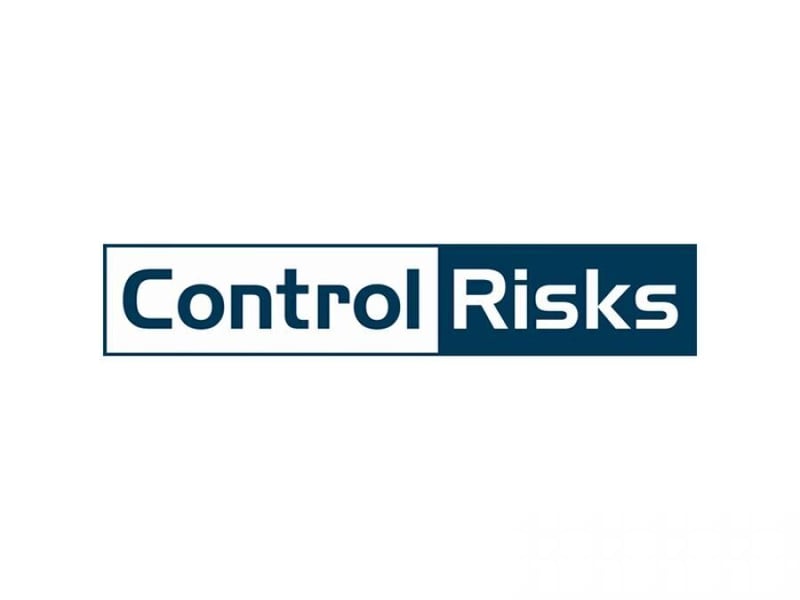Top five business risks for Southern Africa
Written by: MyPressportal Team Save to Instapaper
Political Uncertainty and Large-Scale Cyber Attacks are Key Themes for the Region in 2018
Political uncertainty through transitions and instability are among the key risks for businesses in Southern Africa in 2018, says specialist global risk consultancy Control Risks (www.ControlRisks.com) in its annual political and security risk forecast RiskMap.Control Risks’ Senior Partner for Southern Africa George Nicholls comments:“2018 will see continued uncertainty around political leadership in our Southern African markets. The transitions in Zimbabwe and Angola in 2017, elections in Mozambique in 2018, and factionalism within South Africa’s ruling African National Congress (ANC) once again remind businesses in the region of the importance of gaining a clear understanding of the impact of such uncertainty on their risk environment.”Control Risks has identified the following as the key risks facing businesses in Southern Africa in 2018
- Political instability in South Africa: 2018 will see a continuation of divisions within the ANC following the December 2017 election of a new party president. Competing factions – and the possibility of a split in the party – will drive policy uncertainty and political instability, with President Jacob Zuma likely to step down before the end of the year.
- Political transitions, generational change: Zimbabwe’s President Robert Mugabe has stepped down, Angola’s President José Eduardo dos Santos has been replaced by João Lourenço, and Mozambique’s President Filipe Nyusi is consolidating his authority. Anticipating and preparing for how these transitions will affect business is essential for success in 2018 and beyond.
- Reputational risks in noisy political environments: 2017 saw a series of high-profile corruption scandals in South Africa. These were evident in a mass email leak showing frequent improper communication among senior government officials, politically connected individuals and private business interests. Some businesses have learned the hard way that when a narrow set of interests undermines and subverts the integrity of state institutions, this provides a breeding ground for many other risks to flourish. Protecting reputation – and understanding what might compromise it – has never been more important.
- Large-scale cyber attacks against infrastructure: 2017 was the year of major but random disruptive attacks. 2018 could see the likes of WannaCry, NotPetya and BadRabbit recur, but in a more powerful, targeted and disruptive manner. National infrastructure systems are particularly at risk.
- New threats in Mozambique: Major final investment decisions have been taken on liquefied natural gas projects in northern Mozambique, signalling a likely increase in foreign investment. Rapid economic development in a marginalised part of the country with little state capacity will present a challenging security environment. The influx of money and foreign workers will disrupt social structures and raise expectations of change, increasing the risk of social discontent and the formation of organised groups targeting public and private interests.
Across the African continent, businesses might see the negative impact of a potential renewed debt crisis coming. Many countries in Africa, Mozambique among them, face the prospect of a sovereign debt crisis, a decade after they followed Ghana’s lead in entering the international bond market. The problem is driven by high levels of external debt and persistent uncertainty over the recovery of commodity prices to fund repayments. Nonetheless, ongoing reforms and government recognition of these issues will drive improvements in 2018.
Distributed by APO Group on behalf of Control Risks Group Holdings Ltd.
Get new press articles by email
We submit and automate press releases distribution for a range of clients. Our platform brings in automation to 5 social media platforms with engaging hashtags. Our new platform The Pulse, allows premium PR Agencies to have access to our newsletter subscribers.
Latest from
- Afda Caps Off 2025 With Major Growth Innovation And Expansion Across Campuses
- Rand Firms Against Dollar As Gold Shines And Investor Focus Turns To Final 2025 Economic Releases
- Dunlop Urges Motorists To Prioritise Tyre Safety Ahead Of Busy December Drives Between Joburg And Durban
- Ford Territory Dark Edition Put To The Test For Real-World Fuel Efficiency In The Midsize SUV Segment
- SAA Introduces Year-Round Cape Town Mauritius Service To Boost Tourism And Trade
- Critics Spotlight The Films That Shaped 2025 And Marked A New Era In Cinema
- Menlyn Park Sets The Scene For A Magical Festive Season With New Stores And Family-Friendly Activities
- Chilliengine Celebrates Gold Pendoring Award Win For Immersive Cultural Brand Experience
- G20 Engagements Highlight Pathways For South African Social Investors To Accelerate Inclusive Growth
- Samsung UK Unveils Cinematic Christmas Film Showcasing Galaxy AI In Family Life
- APO Group Names Diego Moriondo Chief Marketing And Communication Officer For SECAM Volunteer Programme
- AfDB Approves $316m To Help Morocco Modernise Key Airports Ahead Of 2030 World Cup
- Eskom Unbundling Sparks A Solar Moment As Businesses Eye Competitive And Greener Power Solutions
- Pinterest Enters Connected TV Advertising To Help Marketers Measure TV Impact On Performance Campaigns
- IATA Highlights Strong Air Traffic Growth In Africa Amid Ongoing Profitability Challenges For Airlines
The Pulse Latest Articles
- Education Is The Frontline Of Inequality, Business Must Show Up (December 11, 2025)
- When The Purple Profile Pictures Fade, The Real Work Begins (December 11, 2025)
- Dear Santa, Please Skip The Socks This Year (December 10, 2025)
- Brandtech+ Has 100 Global Creative Roles For South African Talent (December 9, 2025)
- The Woman Behind Bertie: Michelle’s Journey To Cape Town’s Beloved Mobile Café (December 9, 2025)
